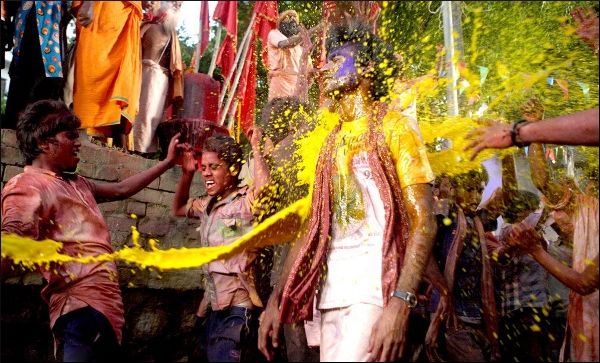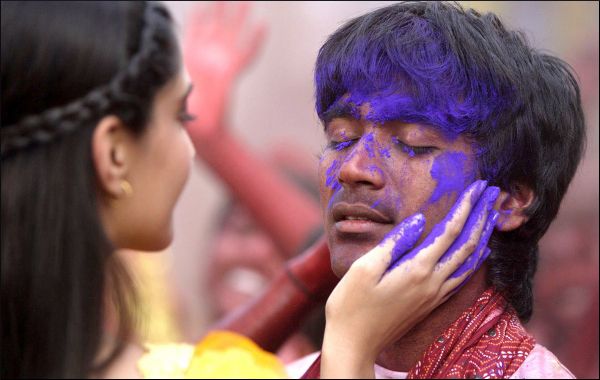
- Raanjhanaa
- 140 minutes - Drama
- Original title: Raanjhanaa
- Director:Anand L. Rai
- Language: Hindi
- Country: India
Love, betrayal, death, politics, and more in this dizzying Bollywood movie, about an everyman in love with a beautiful upper class girl.

Love, betrayal, death, politics, and more in this dizzying Bollywood movie, about an everyman in love with a beautiful upper class girl.
What happens when a popular actor from southern India, who made his name in Tamil-language movies, finally realizes his Bollywood debut? Why, he does better than most actors who consider Hindi their first language! Dhanush, the son-in-law of legendary movie star Rajnikanth, was almost unknown in northern India, where people are mostly ignorant of southern India’s cinema. His critically acclaimed performance opposite Sonam Kapoor in Raanjhanaa came out of nowhere, and for a man who did not speak a word of Hindi prior to filming, Dhanush’s command of the language is unbelievable.
This film has everything a three-hour Bollywood film needs: love, distress, betrayal, weddings, deaths, and even political statements. It’s about a common man, named Kundan, who is madly in love with an upper class girl, named Zoya, for the better part of a decade. Like many Bollywood movies, halfway through the running time the entire plot shifts gears, and instead of a love story it becomes a depiction of grassroots politics. One of the best things about this film is that it captures many aspects of India’s diversity. It begins in the colorful streets of Benaras and then moves to Punjab and Delhi, giving viewers much to think about.
There are several words and phrases viewers should learn early on. One of them is “thapad,” meaning “slap.” At the start of the film, Zoya slaps Kundan no less than 20 times. None of this makes Kundan give up his romantic pursuit, however. When he is advised to stop chasing after her, he replies, “Yeh Banaras hai aur launda saala yaha bhi har gya toh jeetega kaha” (This is Benaras, if a guy doesn’t win here, he will not win anywhere). The construction “Yeh… hai” (This is…) is often used to describe the temperament or vibe of a place in India. This is because the country is very diverse. What happens in Benaras is totally unlike what would happen in Mumbai. Kundan, with this statement, means to say that Benaras is something of a romantic, smallish city, where it’s still possible for the underdog to win the girl. If he can’t do it in Benaras, well, he won’t be able to do it anywhere else in India.

Another interesting and funny line can be heard when Zoya is sitting in the back seat of a rickshaw driven by Kundan’s close friend. Kundan says, “Aye rickshaw waale, paise mat lena madam se bhabhi hai tumhari.” “Paise mat lena” means “Don’t take money,” while “Madam se bhabhi hai tumhari” translates into “She is your sister-in-law.” Kundan uses the word “bhabhi” (sister-in-law) to infer that Zoya will be his future wife, and since his friend is like a brother to him, then the rickshaw driver will become Zoya’s brother-in-law. Thus, he should not take her money. Of course, this is said without Zoya’s consent.
It is hard not to love Kundan throughout the film. However, it is surprisingly difficult to have an ounce of affection for Zoya, who proves to be utterly intolerable. It’s hard to imagine that the filmmakers meant for their lead actress to come across this way, but she does and it’s quite annoying. With an unlikeable female protagonist and a very wobbly storyline, the only thing holding the film together is an amazing performance by Dhanush. Hopefully, this superstar from the South continues to work in the North.
